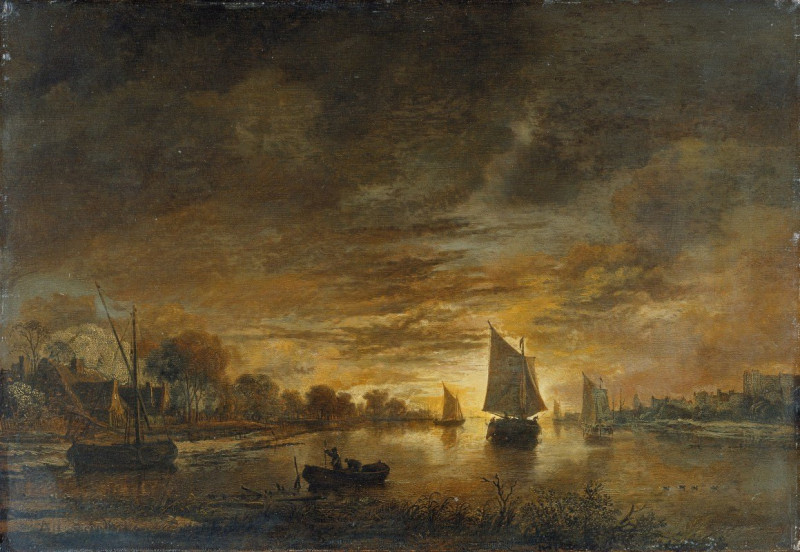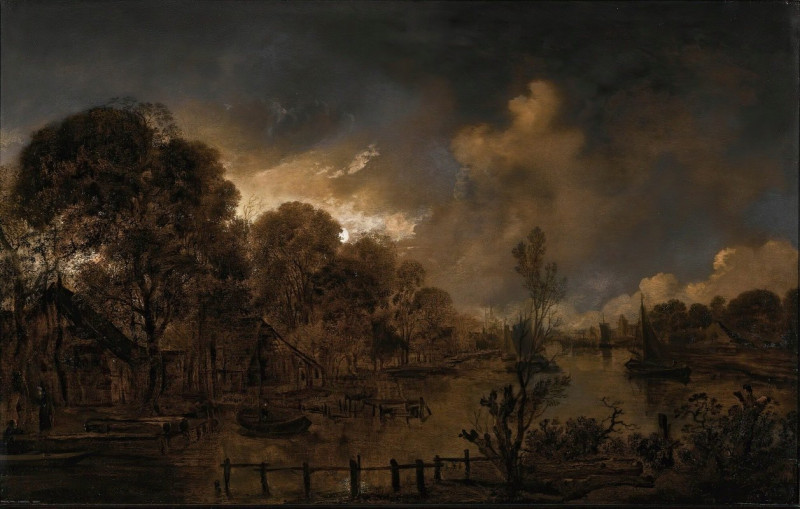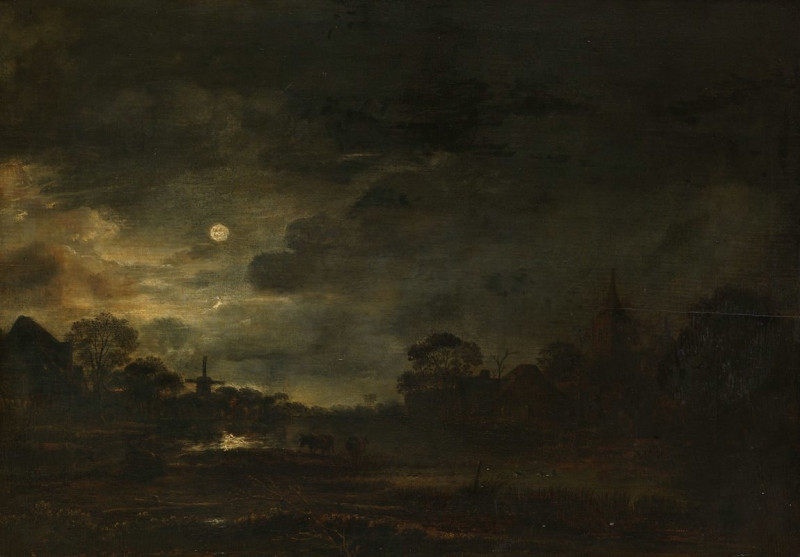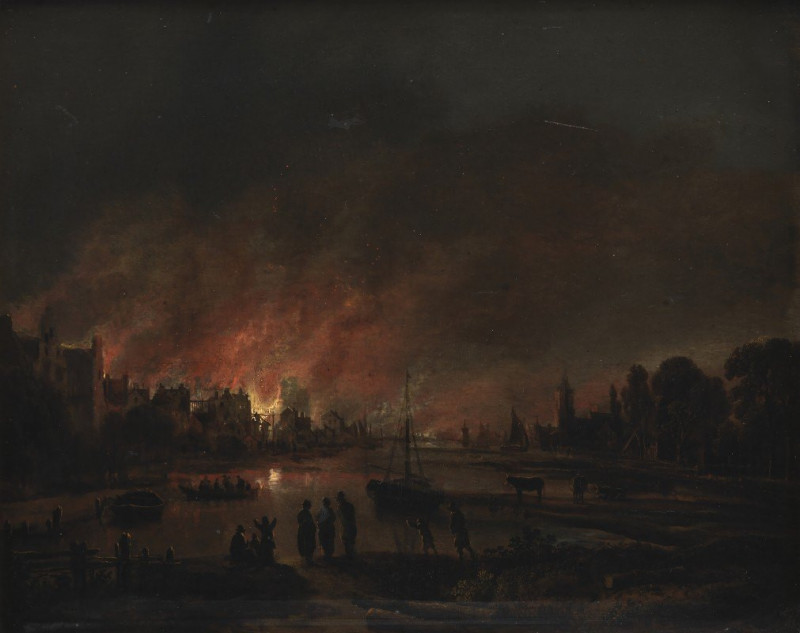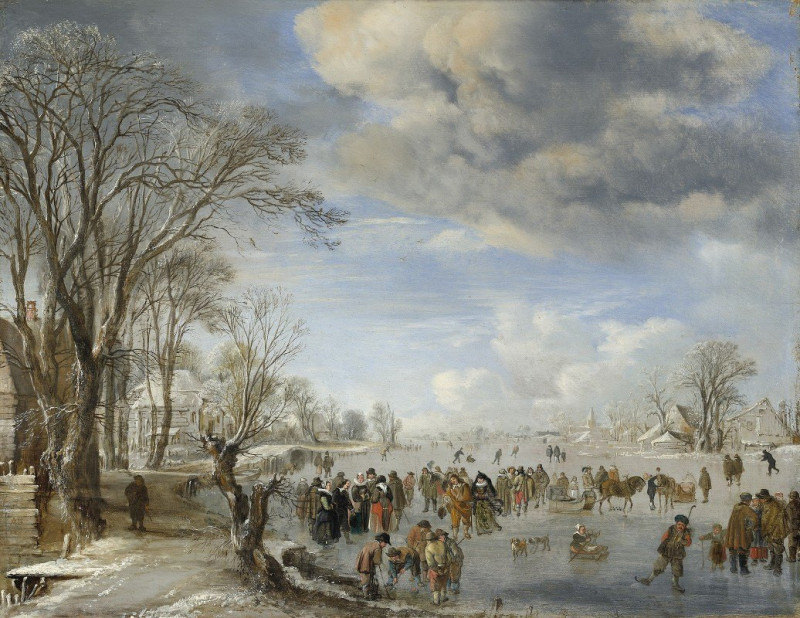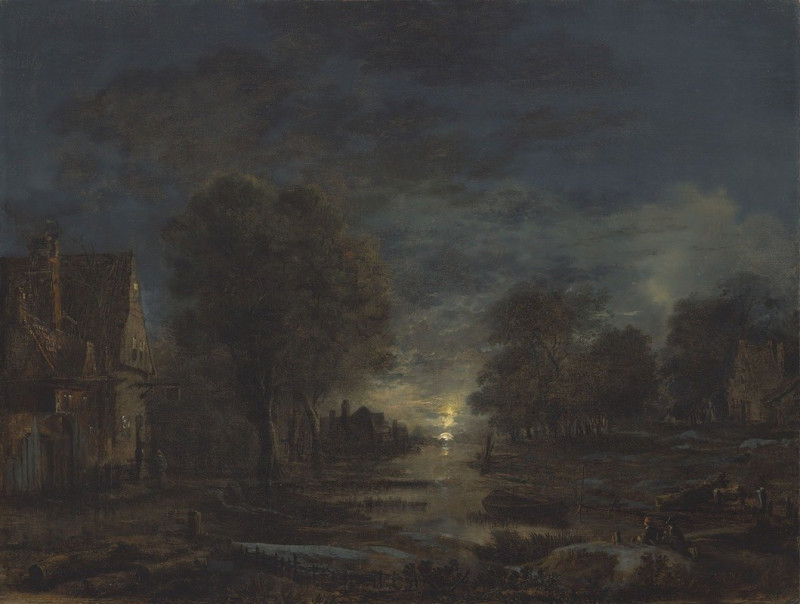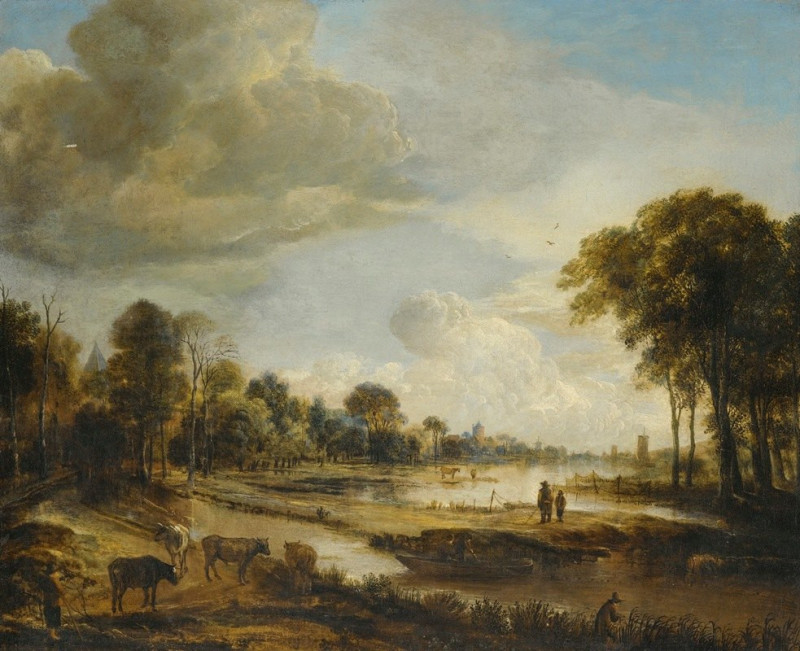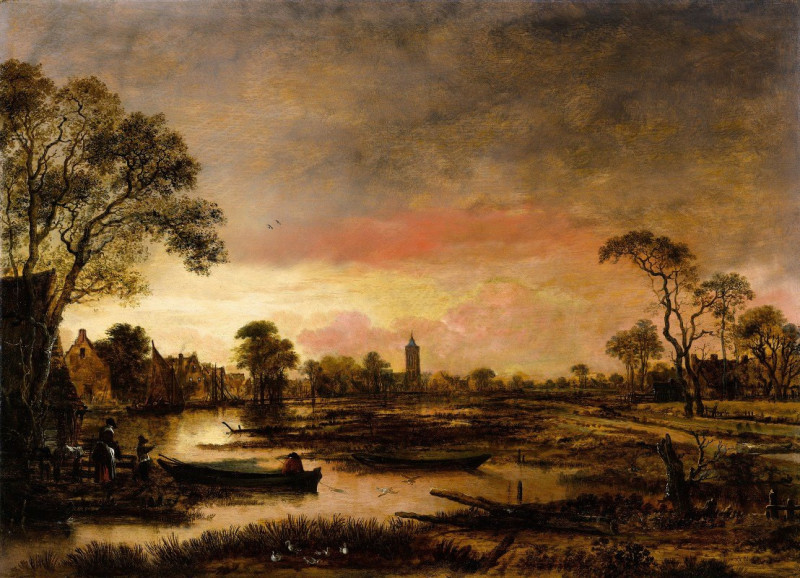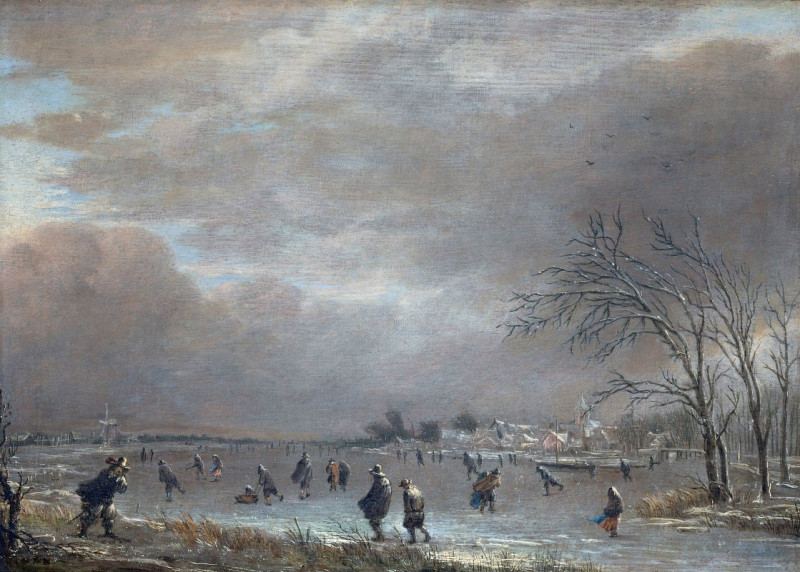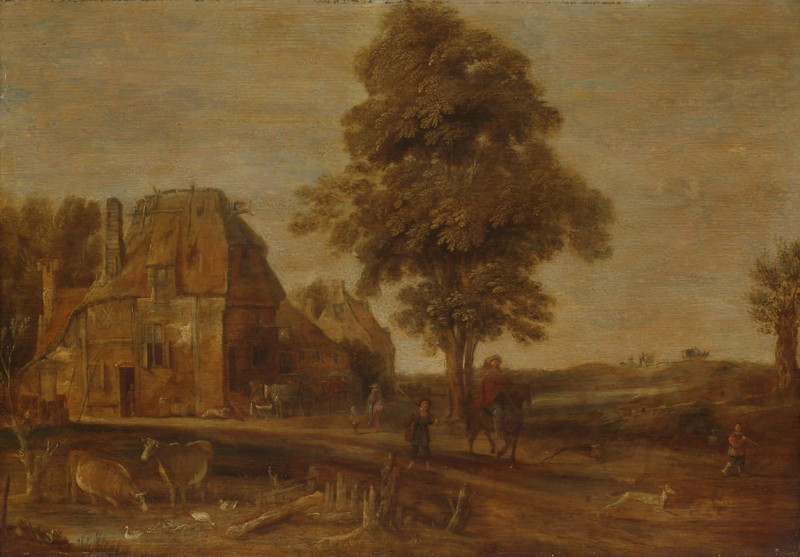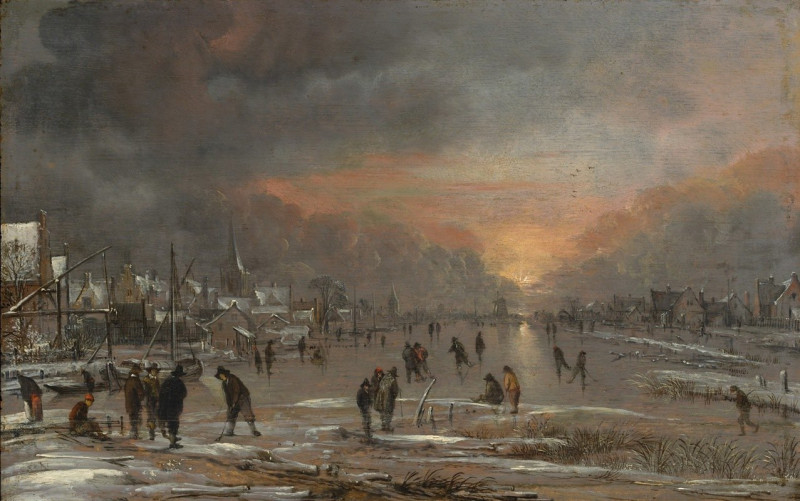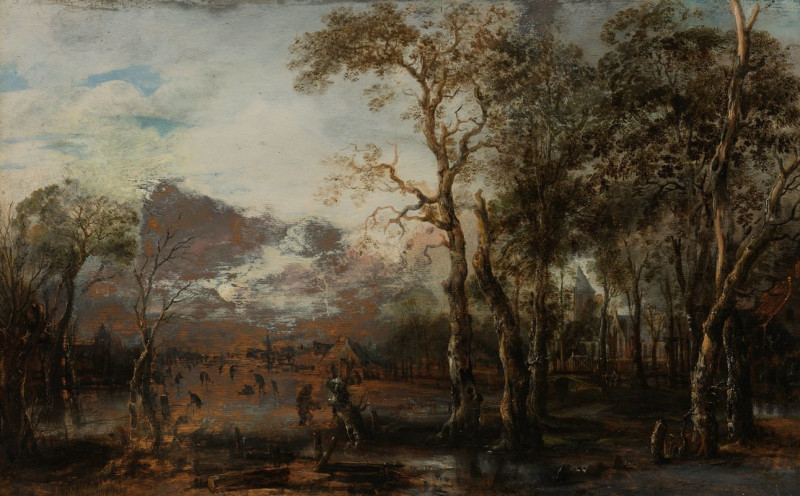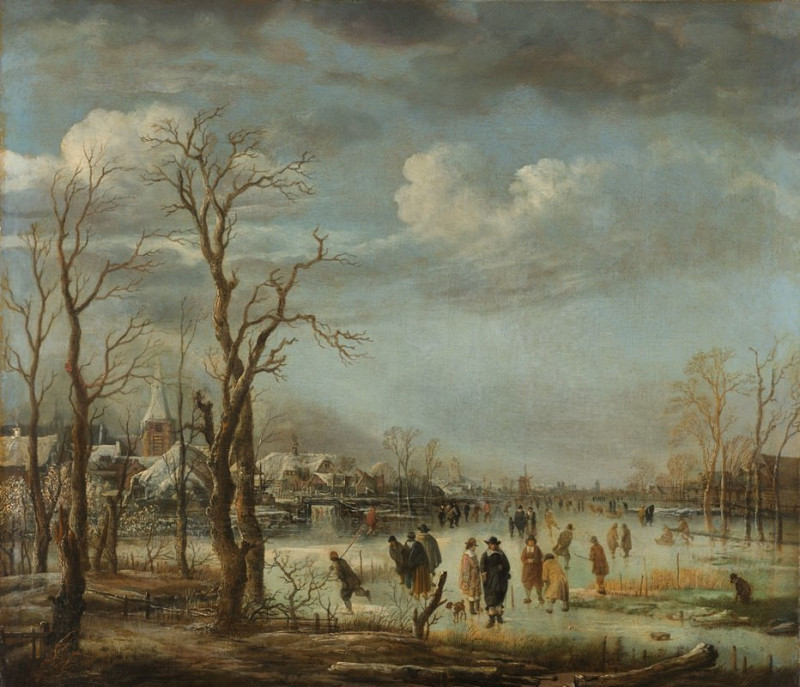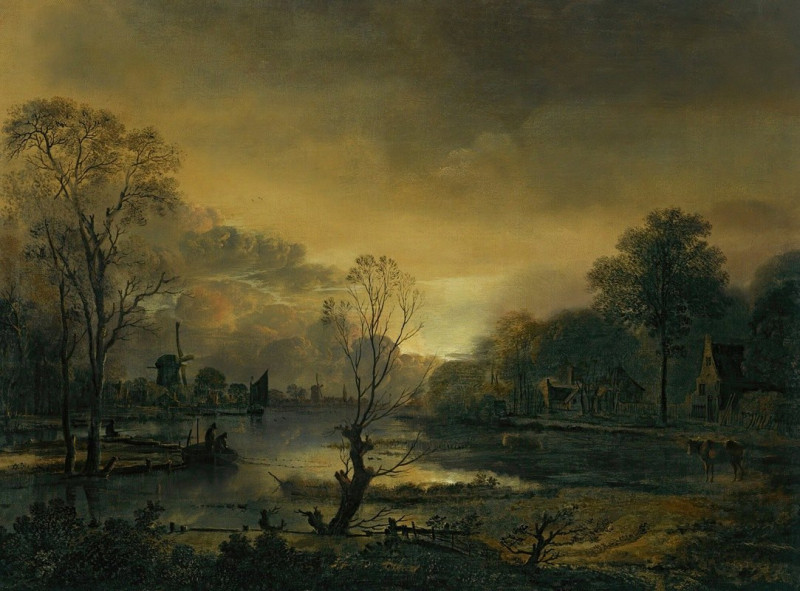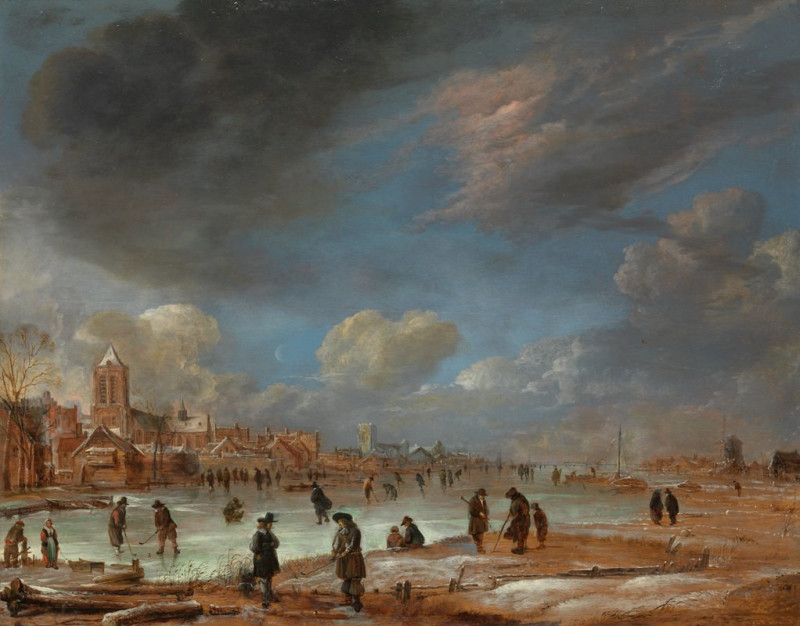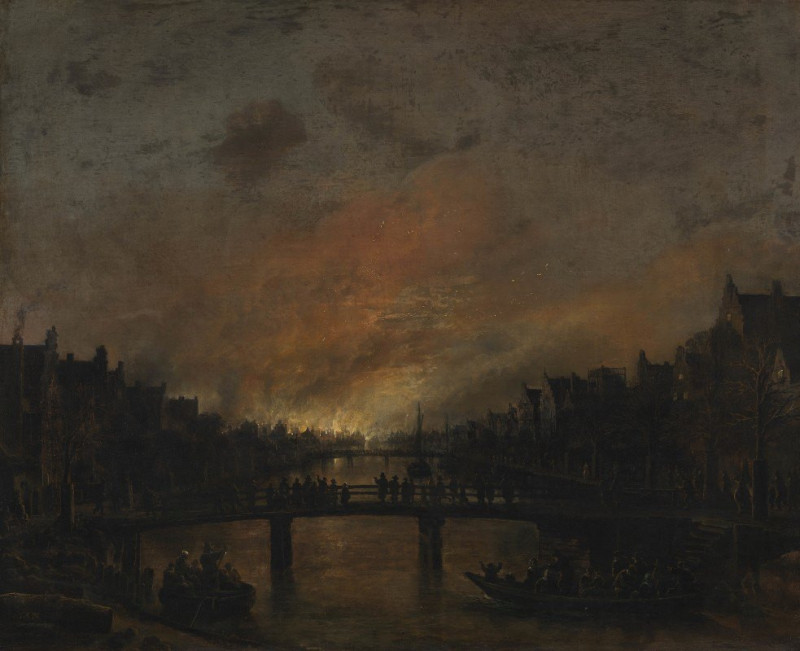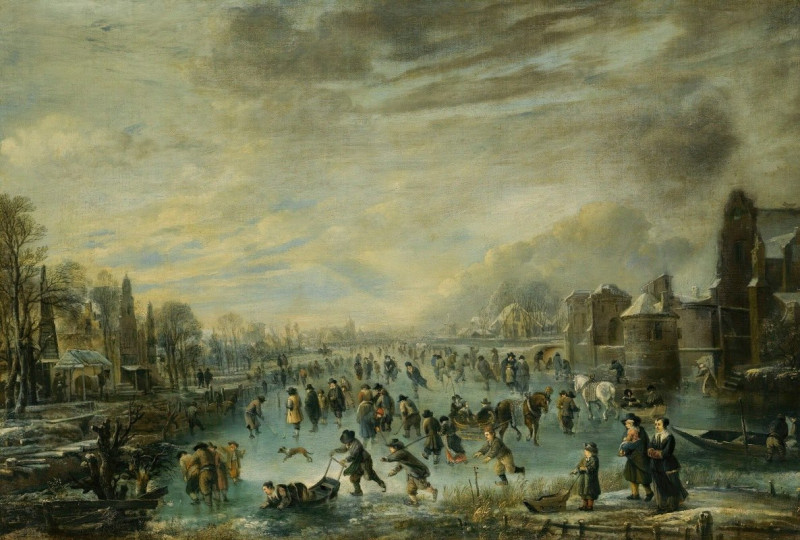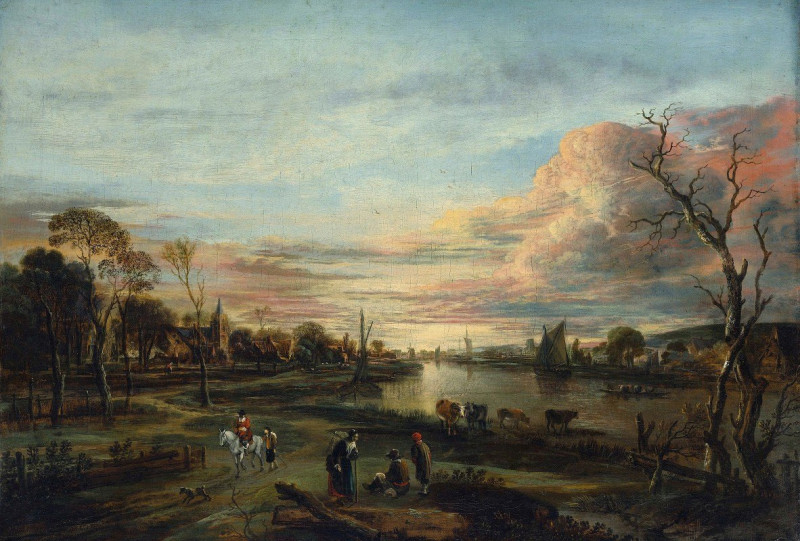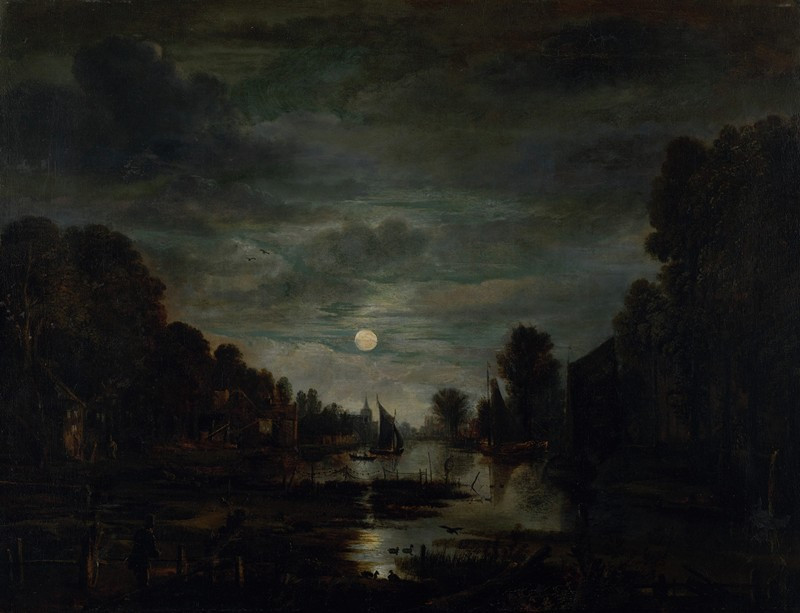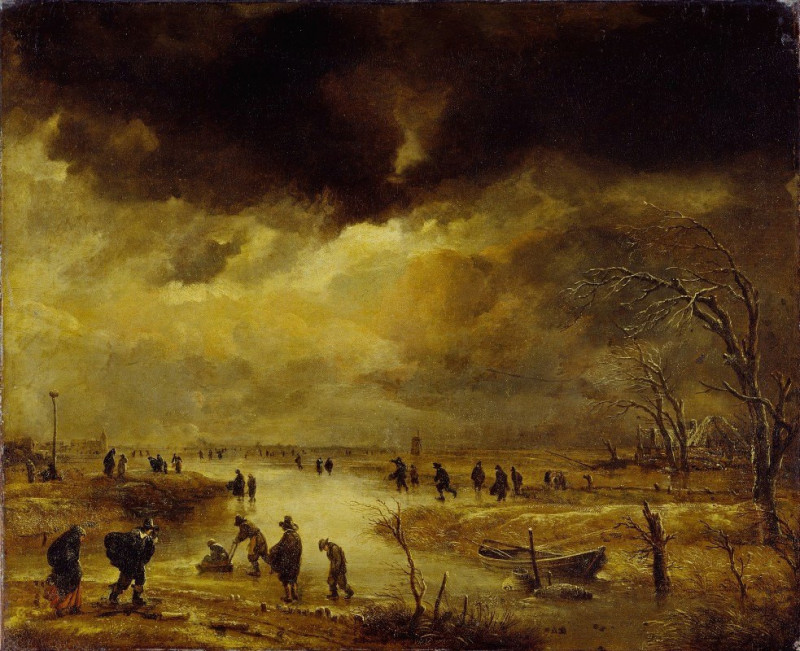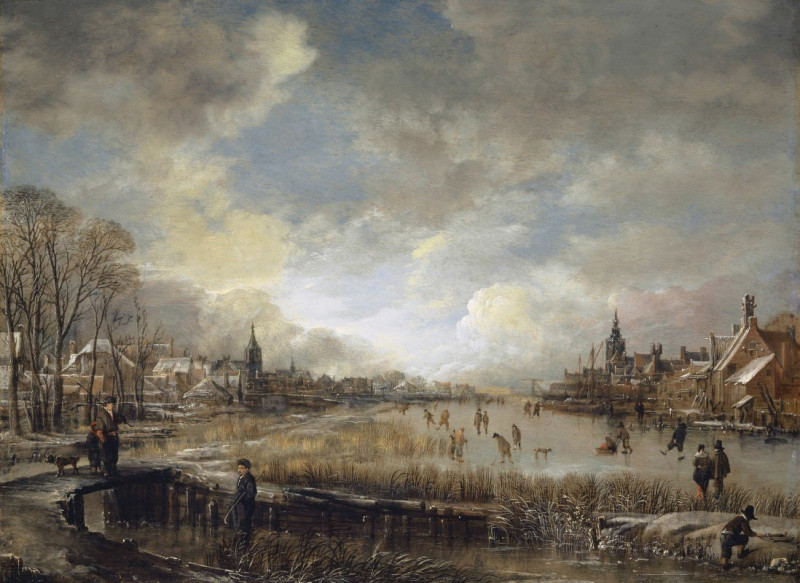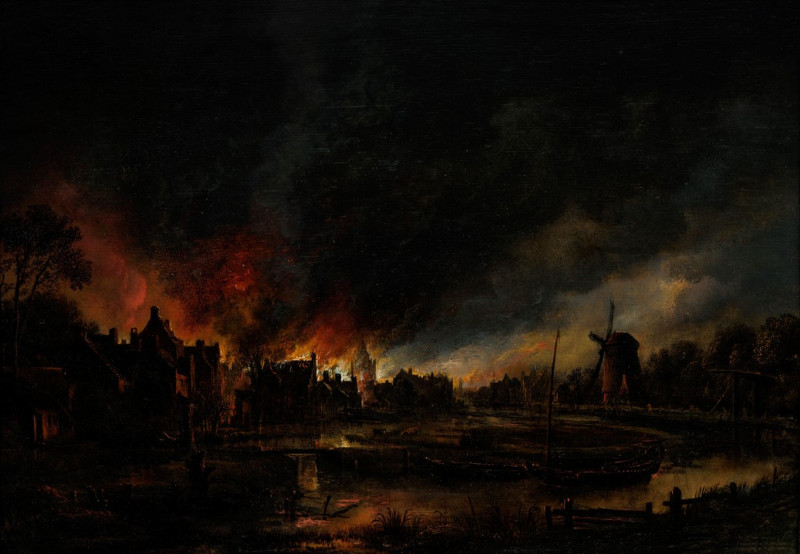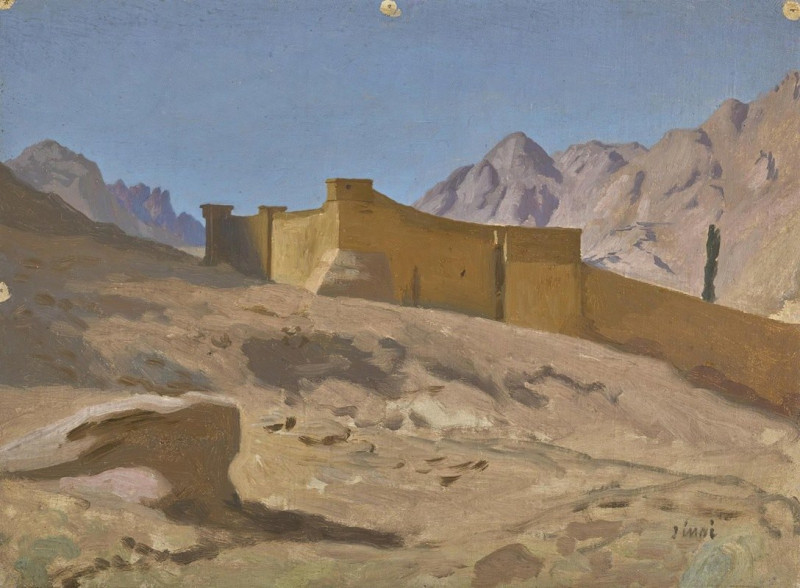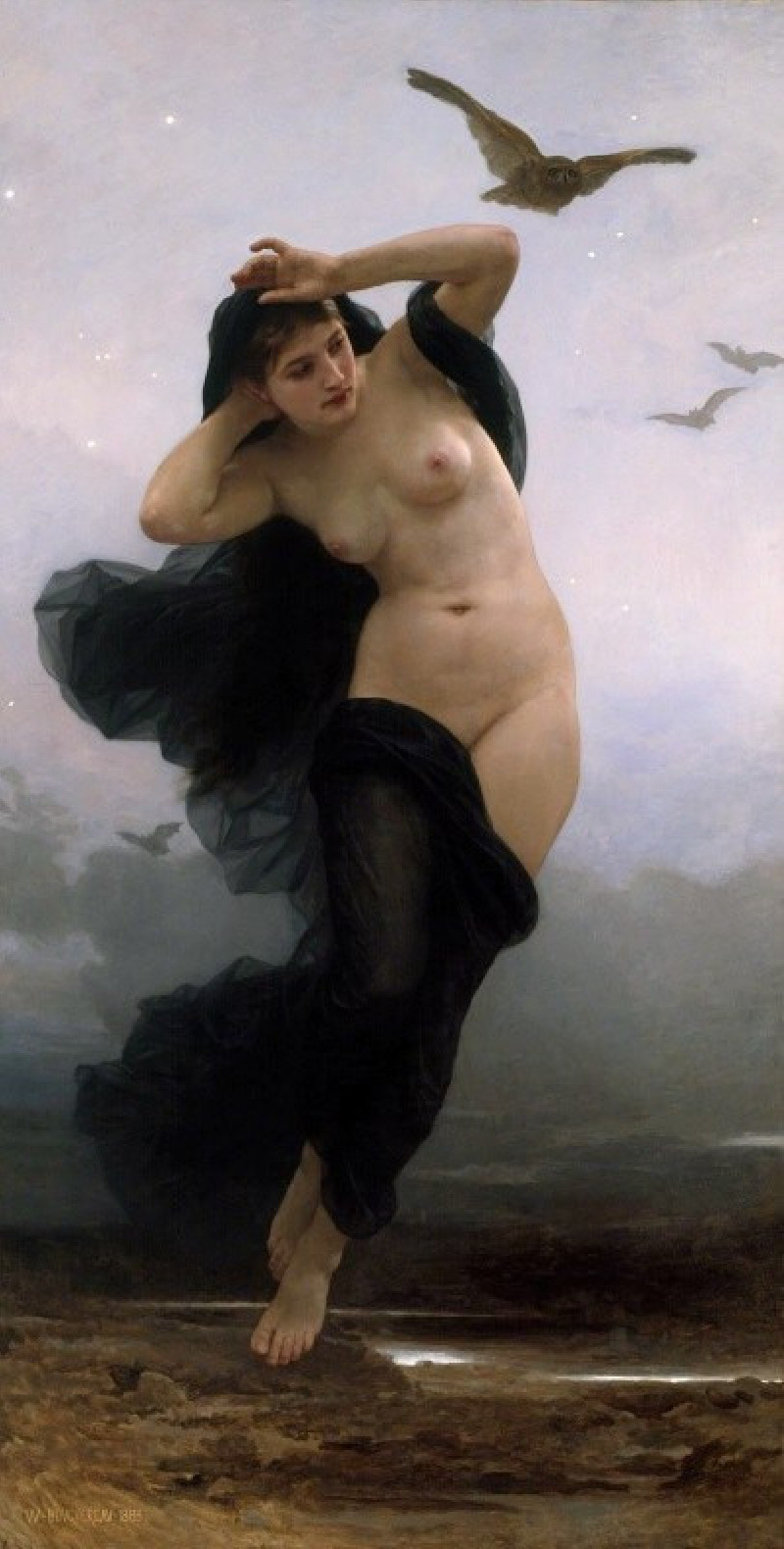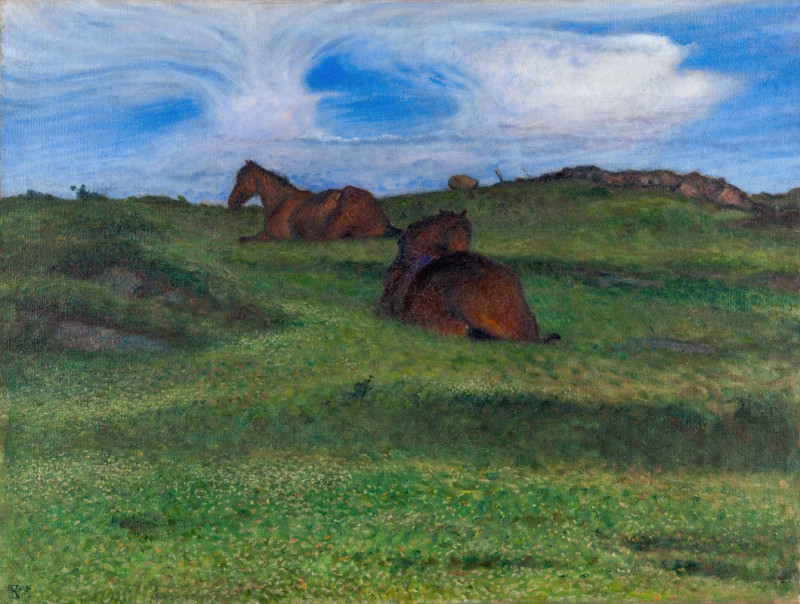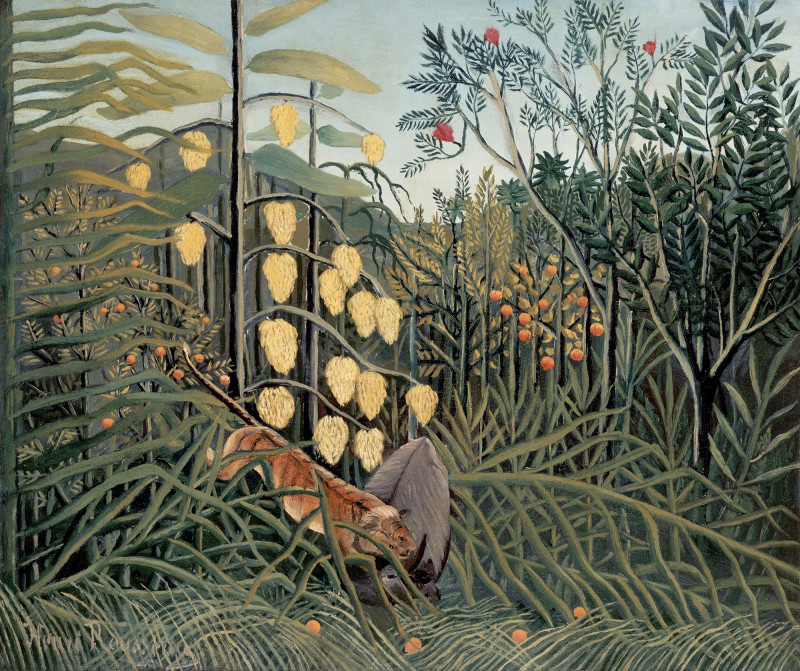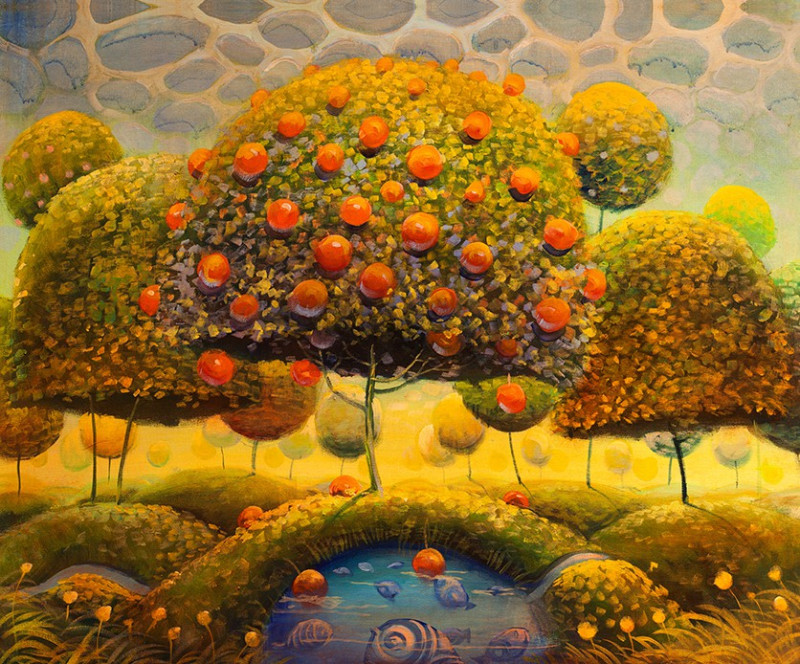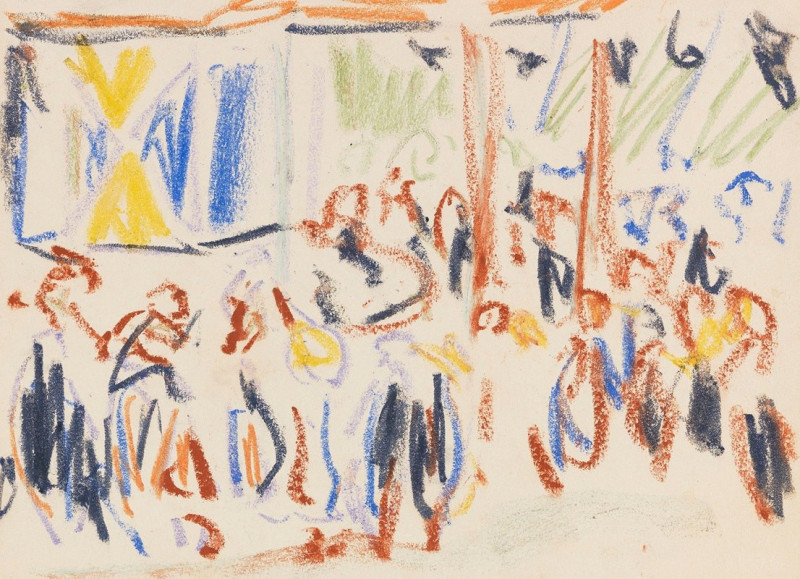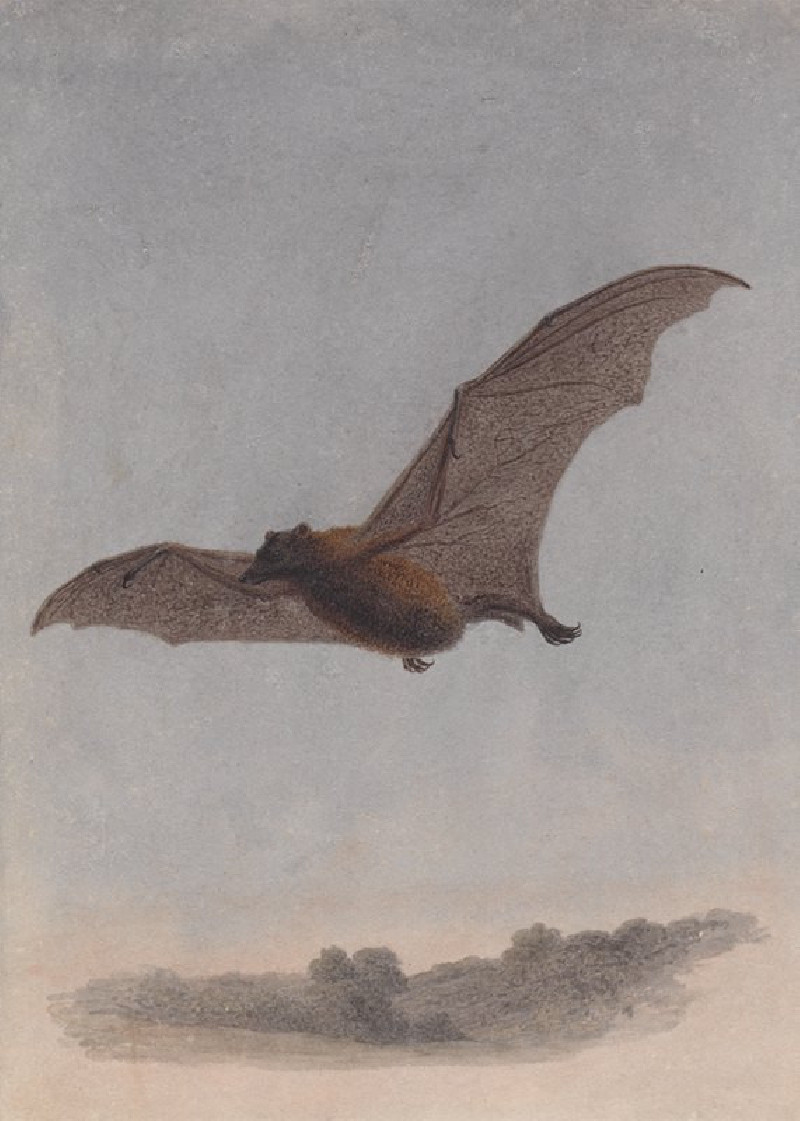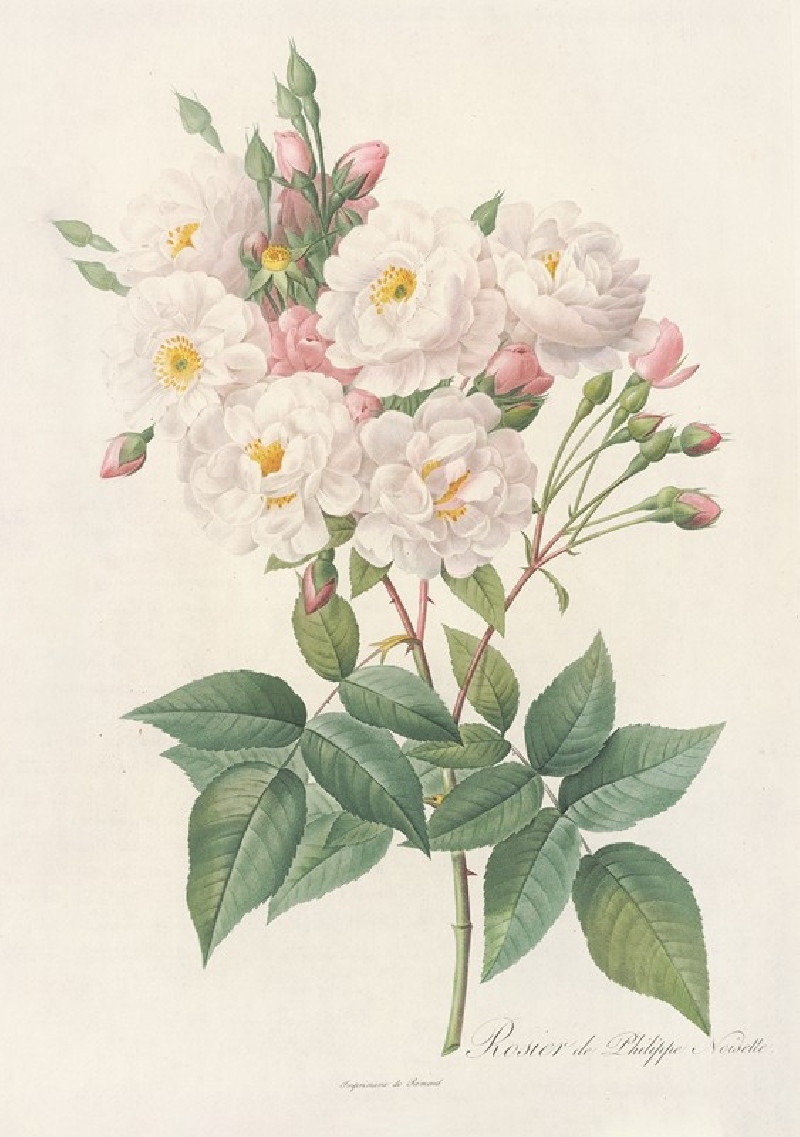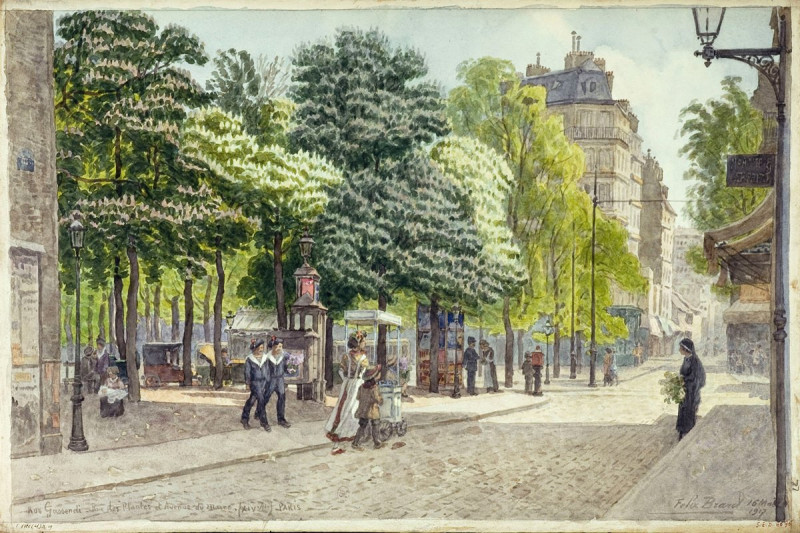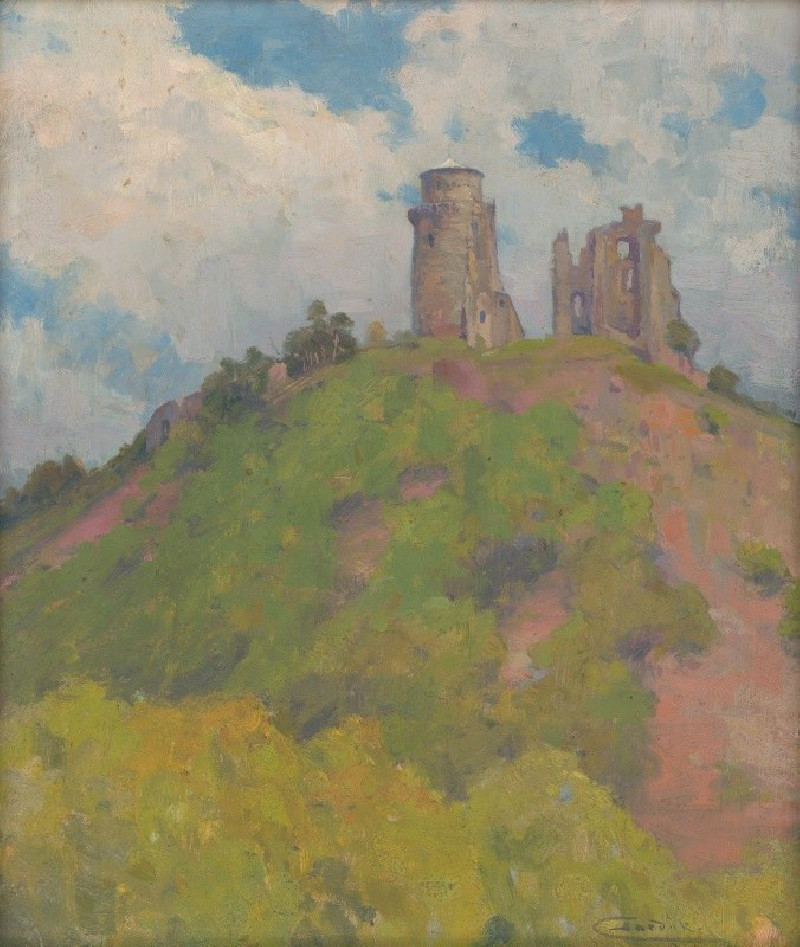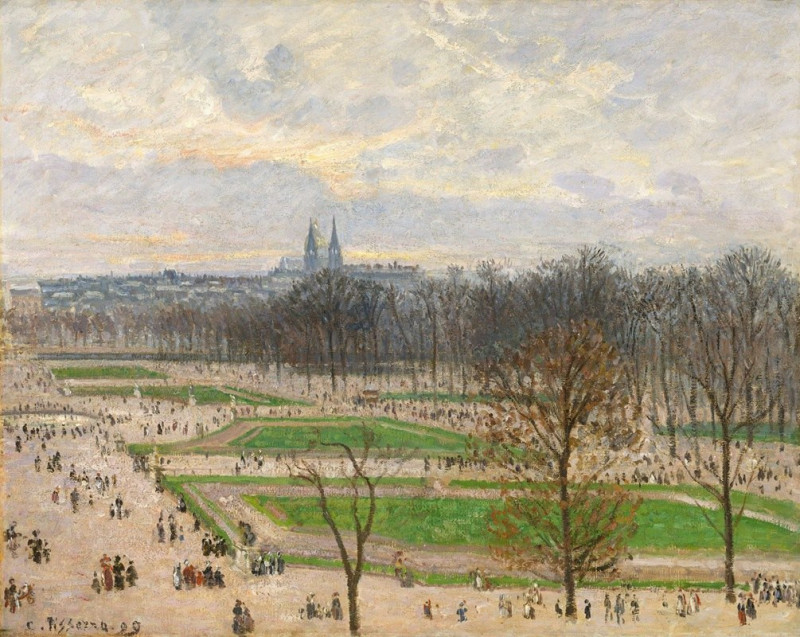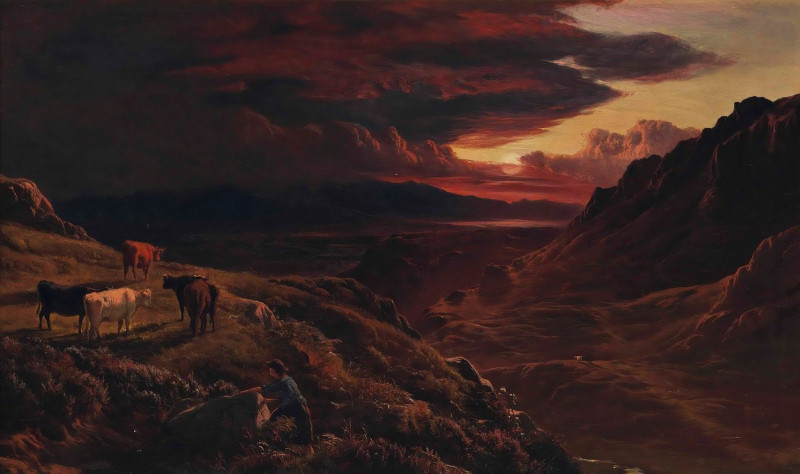River Landscape with Ships at Moonrise (ca. 1660 – 1670)
Technique: Giclée quality print
Recommended by our customers
More about this artwork
"River Landscape with Ships at Moonrise," a captivating painting by the Dutch artist Aert van der Neer, dates back to the period between 1660 and 1670. This artwork masterfully captures the tranquil essence of a river scene bathed in the ethereal glow of a rising moon.In this serene representation, the viewer's eye is drawn towards the luminous horizon, where the moon casts its soft light upon the water, reflecting and enhancing the gentle movements of the river. The painting is composed with a delicate balance of shadow and light, allowing the moon's radiance to both illuminate and be veiled by the cloud-swept sky.The foreground features several ships, each meticulously detailed, showcasing van der Neer's skill in rendering maritime subjects. On the left, a larger ship anchored near the bank interacts gracefully with a smaller rowboat, likely involved in nightly fishing or transit. On the right, the scene expands to include more vessels in motion, their sails gently billowed by a calm breeze, contributing to the overall atmosphere of peaceful activity.Adding depth to the scene, the distant shorelines are adorned with silhouettes of buildings and trees, suggesting a populated but tranquil riverside village. These elements not only provide a backdrop but also enrich the narrative of a vibrant community existing in harmony with the natural ebb and flow of riverine life."River Landscape with Ships at Moonrise" by Aert van der Neer invites contemplation, evoking a timeless connection to nature's cycles and the quiet moments that resonate through the ages.
Delivery
Returns
Aert van der Neer, or Aernout or Artus (c. 1603 – 9 November 1677), was a landscape painter of the Dutch Golden Age, specializing in small night scenes lit only by moonlight and fires, and snowy winter landscapes, both often looking down a canal or river. He was a contemporary of Aelbert Cuyp and Meindert Hobbema, and like the latter he lived and died in comparative obscurity.

